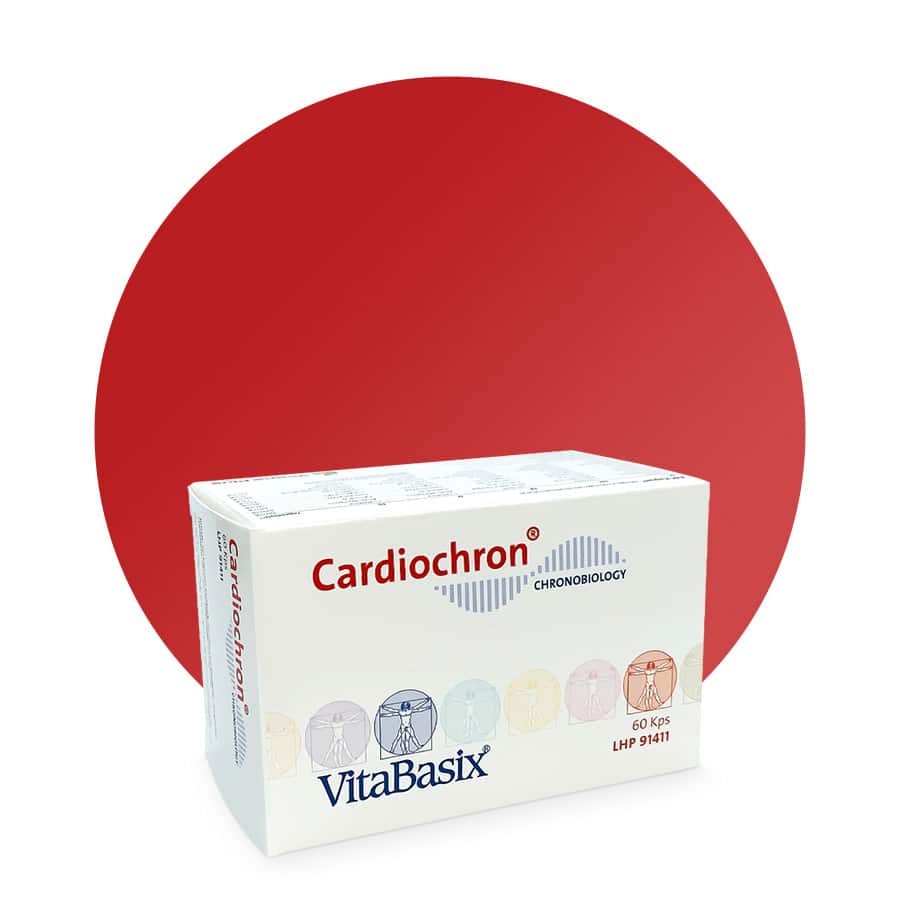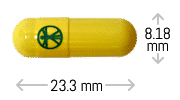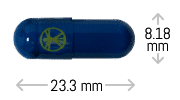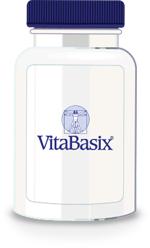An important aspect associated with cardiovascular problems appears to be a high blood level of homocysteine. Nutrients such as folic acid in combination with vitamins B6 and B12 have been shown to be effective in maintaining normal homocysteine levels. The active ingredients are a combination of synergistic nutrients, that may have effects on the heart and cardiovascular system.
The following nutrients have a positive effect on heart function:
Folic acid: Vitamin B9 is found in green leafy vegetables such as spinach, cucumbers and cabbage. Legumes, nuts and oranges are also rich in folic acid. Folic acid can support the normal function of the entire nervous system and at the same time promote normal homocysteine levels in the blood and energy metabolism.
Vitamin B12 is found in animal foods such as fish, meat, eggs and seafood. Together with folic acid, it plays a role in a number of important physiological processes in the body. These include normal DNA synthesis, blood formation and nerve function. Because vitamin B12 levels decline with age, older people often have signs of deficiency. Vitamin B12 may contribute to normal energy metabolism as well as normal homocysteine metabolism. In addition, it may contribute to normal red blood cell formation.
Taking vitamin B6 can also support normal homocysteine metabolism and contribute to a normal immune system. This vitamin is found in almost all animal and plant foods.
The vitamin B complex also provides: thiamine (B1), riboflavin (B2), niacin / niacinamide (B3), pantothenic acid (B5) and biotin. Each of these nutrients has a unique biochemical structure and physiological function. Since they are vitamins, it is recommended to take them with food. When taken in combination, B vitamins can help support a normal cardiovascular system.
Calcium: Certain calcium-containing mineral mixtures have numerous characteristics. They not only provide the organism with minerals, but can also help regulate the body’s pH. Calcium is found in foods such as dairy products, certain fruits and vegetables, nuts, seeds, fish and eggs, among others. It can help promote normal blood circulation.
Magnesium enjoys a well-deserved reputation as an anti-stress mineral. Foods such as pumpkin seeds, wheat bran and sunflower seeds are particularly rich in magnesium. Dark chocolate, nuts and bananas also provide this mineral. It has spasmolytic characteristics and has a natural relaxing effect on the muscles. In this sense, magnesium acts not only on skeletal muscles but also on the smooth muscles of the vascular system as well as those of the gastrointestinal tract. May support normal heart function and help maintain blood pressure levels within the normal range.
Co-enzyme Q10 is found in animal foods such as meat, fish, poultry and liver. But certain oils and legumes are also rich in this ingredient. Co-enzyme Q10 is essential for energy production in the body. This co-enzyme, also known as ubiquinone, is active in all living cells of the body as part of the respiratory chain and is similar in structure to vitamins E and K. Co-enzyme Q10 is essential for optimal organ function and general well-being. It can support the immune system and normal blood pressure.
Nattokinase is a unique and powerful enzyme obtained from the fermentation of soya seeds. May promote normal blood circulation and contribute to normal blood calcium levels.
Grape seeds can help to maintain the elasticity of the blood vessel walls.
Piperine is found in black pepper and can increase the bioavailability of various micronutrients.
Another nutrient is lycopene. This substance of the carotenoid family is most abundant in tomatoes. It can strengthen the heart and blood vessels and protect the cells in the body.
Finally, a number of L-amino acids, including L-arginine, L-carnitine, L-lysine, L-proline and L-cysteine are also important. These nutrients, which are found in many types of meat and fish, promote blood circulation and have a positive effect on the general immune system.





 Chronobrands
Chronobrands




Reviews
There are no reviews yet.